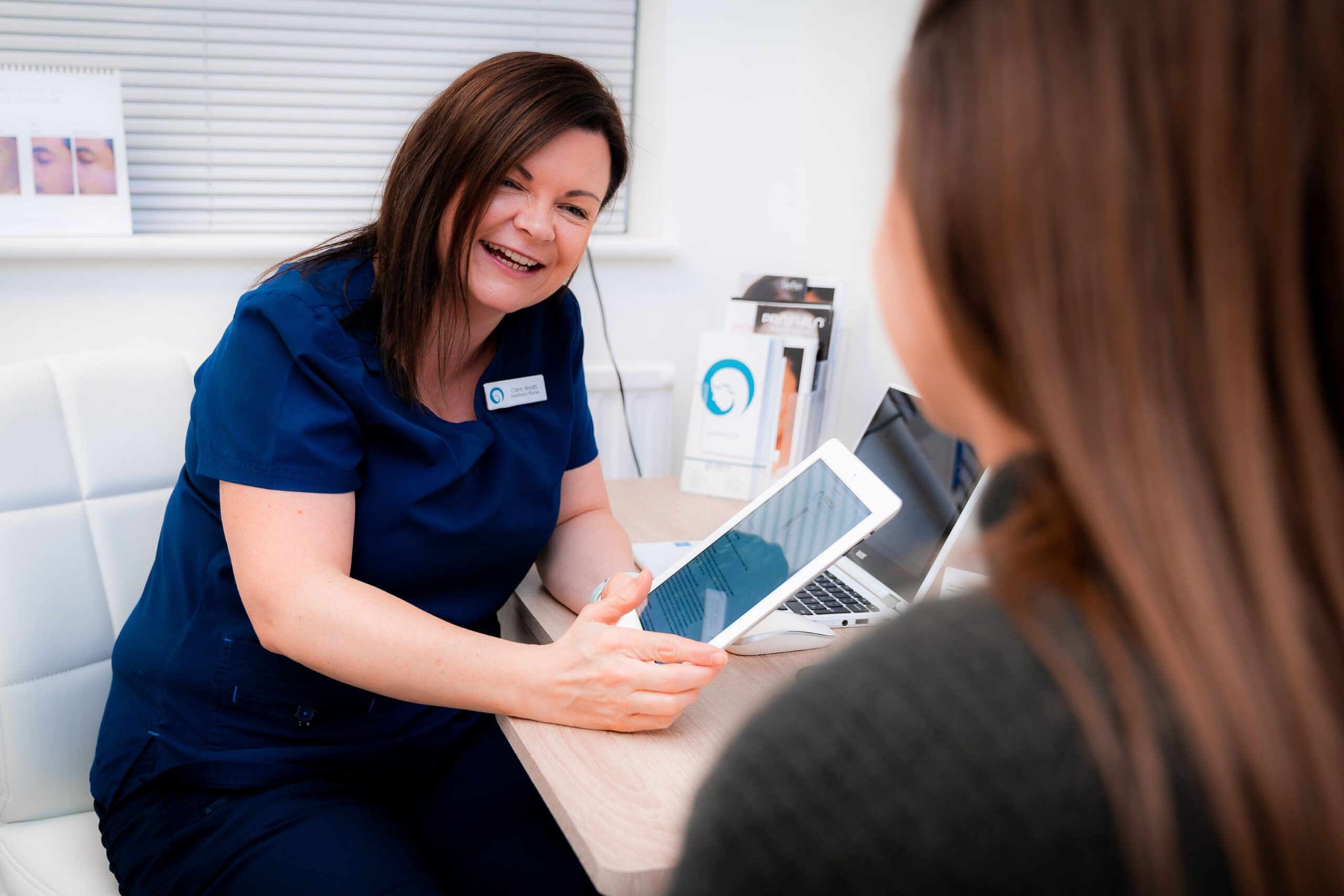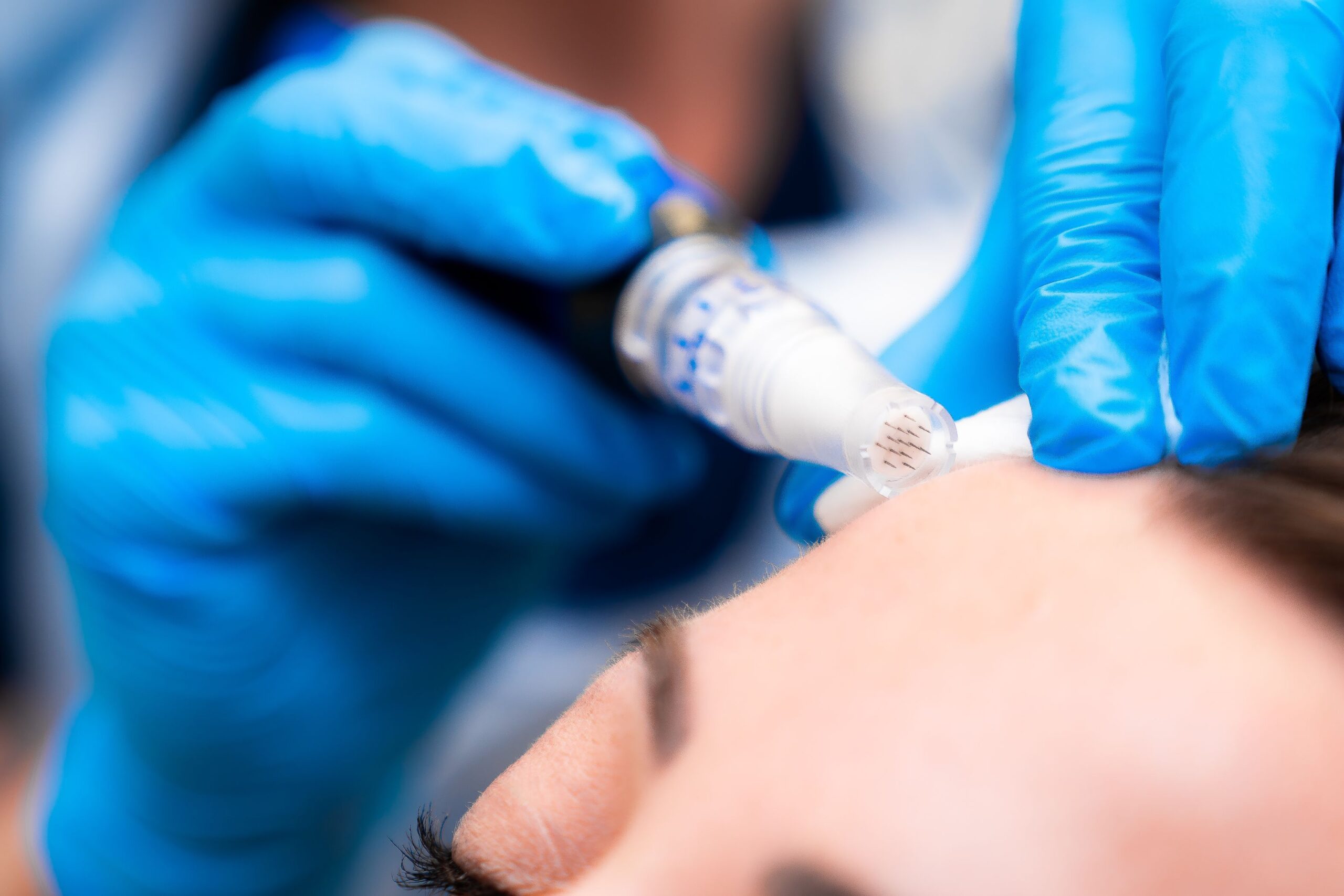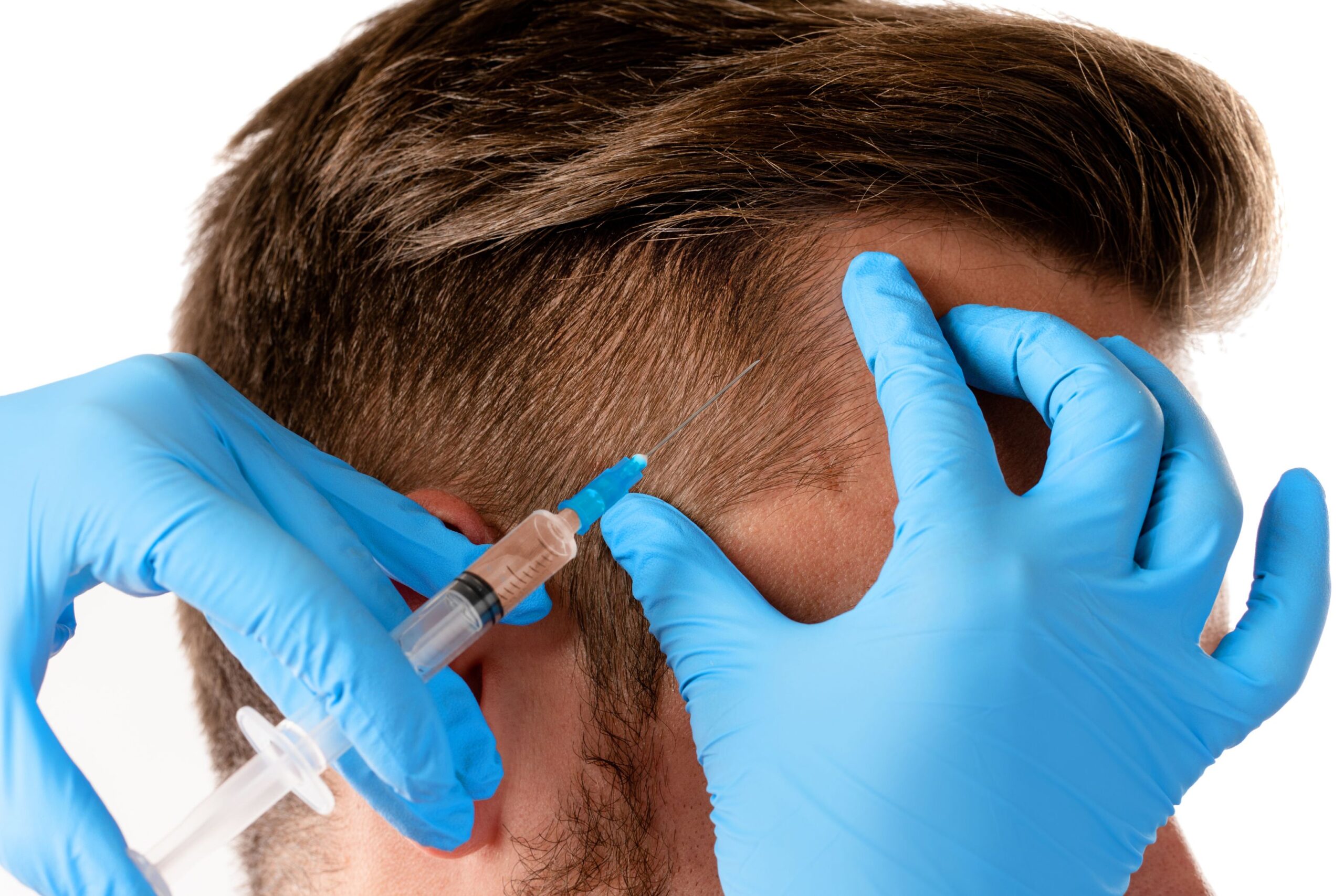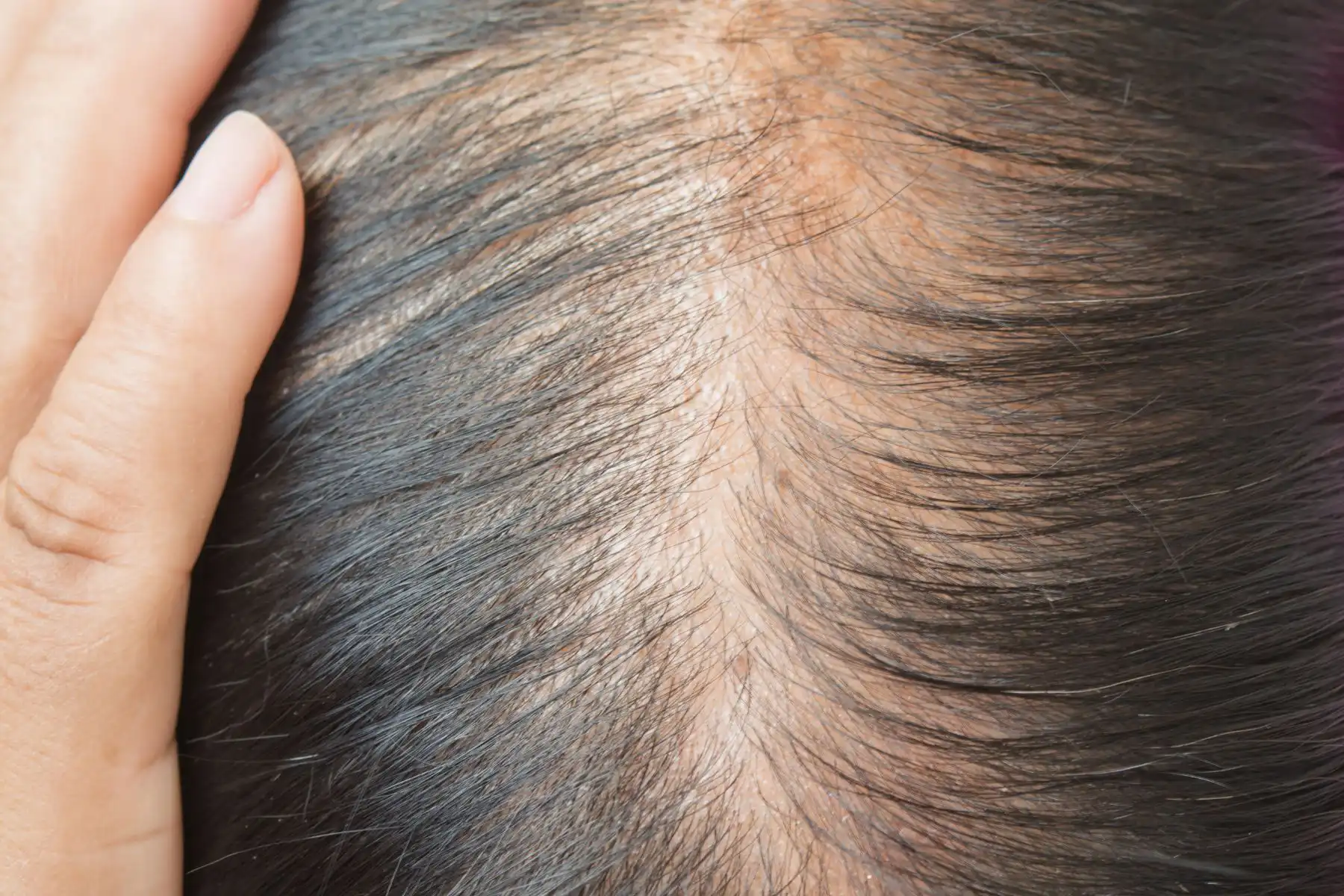
Thinning Hair
Discover what causes thinning hair and how to tackle it effectively.
Our expert team provides customised treatments, from advanced procedures to personalised plans, ensuring effective reduction of hair loss with ease.
Say goodbye to hair thinning and hello to confidence with Freyja Medical.
What causes Thinning Hair?
Hair thinning refers to a gradual reduction in hair density, making the scalp more visible. It’s a common condition that can affect all genders and is different from complete hair loss or baldness. It is often characterised by a reduction in hair volume, diameter, and overall coverage on the scalp. Causes of hair shedding can include:
-
Genetics
-
Hormonal Changes
-
Medical Conditions
-
Medications
-
Nutritional Deficiencies
-
Stress
-
Hair Care Practices
-
Ageing
Understanding the underlying cause of sparse hair is crucial for determining the most effective treatment approach.
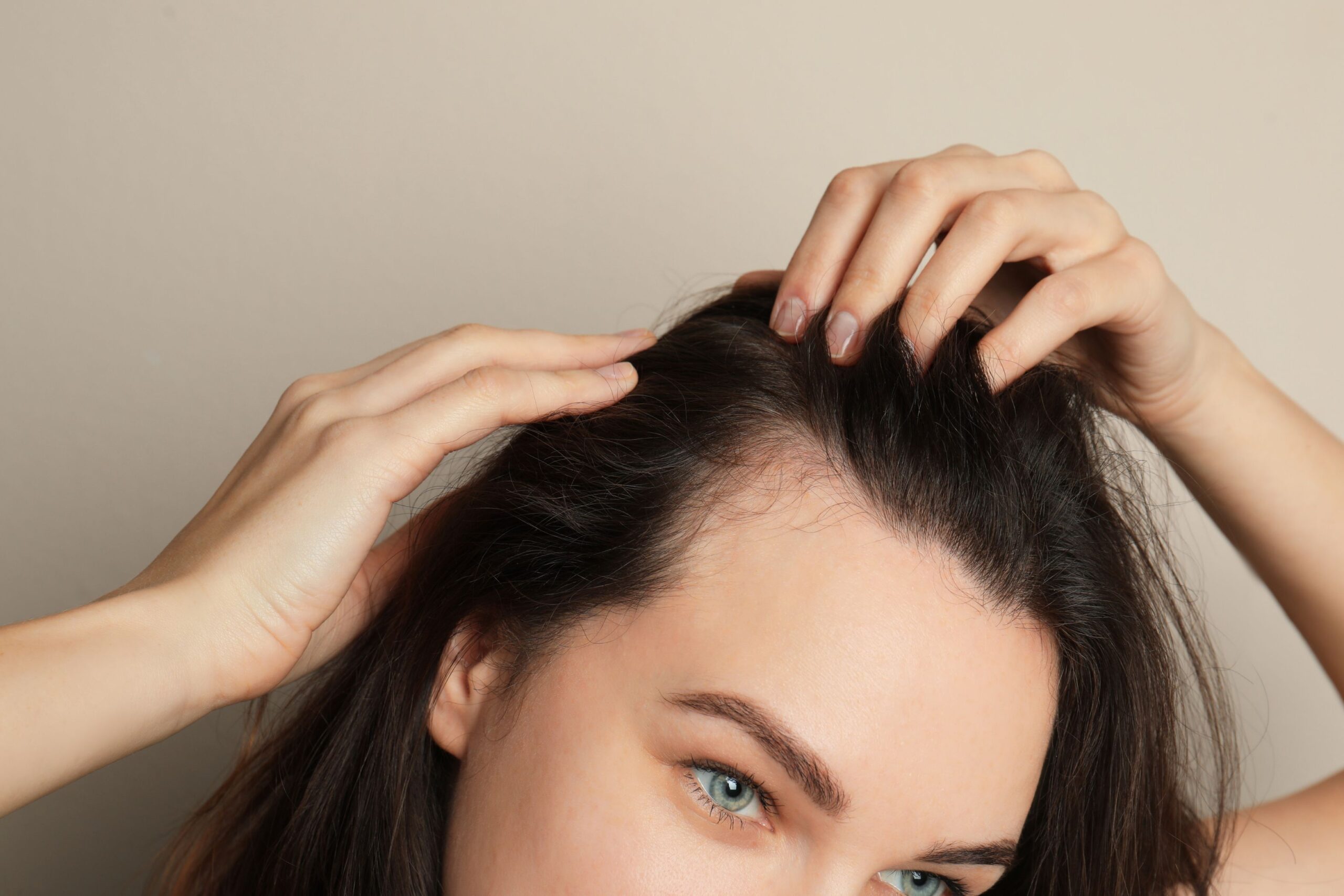
Thinning Hair Treatments
Aesthetic Consultation
At Freyja Medical, our aesthetic consultation for thinning hair includes a comprehensive evaluation by expert practitioners.
We assess your hair and scalp, discuss your medical history, and identify causes of thinning. We then develop a customised treatment plan tailored to your needs, which may include advanced procedures, personalised care regimens, and lifestyle recommendations.
Our goal is to restore your hair’s fullness and health with effective, evidence-based solutions, ensuring you feel confident and supported throughout your hair restoration journey.
Microneedling
Microneedling for thinning hair at Freyja Medical uses fine needles to create tiny punctures in the scalp, stimulating natural hair growth.
This minimally invasive procedure boosts blood circulation and promotes the production of growth factors and collagen.
Our expert pracitioners tailor each session to your needs, ensuring optimal results and minimal discomfort.
Microneedling offers a promising solution to restore hair density and vitality.
Polynucleotides
Polynucleotides are an innovative treatment for thinning hair, promoting scalp regeneration and tissue repair.
When applied to the scalp, they stimulate collagen production, improve hydration, and support hair follicle health, encouraging thicker and stronger hair growth.
This biocompatible treatment works from within to rejuvenate the scalp, offering a natural, longer-lasting solution compared to traditional hair loss treatments.
What causes thinning hair?
Hair thinning refers to a gradual reduction in hair density, making the scalp more visible. It’s a common condition that can affect both men and women and is different from complete hair loss or baldness. It is often characterised by a reduction in hair volume, diameter, and overall coverage on the scalp.
Causes of Thinning Hair:
- Genetics: Hereditary hair thinning, also known as androgenetic alopecia, is the most common cause. This condition can affect both men (male pattern baldness) and women (female pattern hair loss).
- Hormonal Changes: Hormonal imbalances, such as those occurring during pregnancy, menopause, or due to thyroid problems, can lead to hair shedding.
- Medical Conditions: Conditions like alopecia areata, scalp infections, and other skin disorders can contribute to hair thinning.
- Medications: Certain medications, including those for cancer, arthritis, depression, heart problems, and high blood pressure, can cause hair thinning as a side effect.
- Nutritional Deficiencies: A lack of essential nutrients like vitamins (especially vitamin D and B vitamins), iron, and protein can weaken hair and lead to reduced hair volume.
- Stress: Physical or emotional stress can trigger temporary hair thinning, known as telogen effluvium, where hair prematurely enters the shedding phase.
- Hair Care Practices: Overuse of harsh hair treatments, frequent use of heat styling tools, tight hairstyles, and excessive chemical exposure can damage hair and cause it to thin.
- Ageing: As people age, hair naturally becomes finer and less dense, which can contribute to thinning.
Understanding the underlying cause of hair shedding is crucial for determining the most effective treatment approach.
Can you restore thinning hair?
Restoring thinning hair can be possible, depending on the underlying cause. Here are several methods that can help restore decreased hair density:
Medical Treatments
Topical treatments like Minoxidil, prescription medications such as Finasteride and Spironolactone, and hair transplant surgery (FUT and FUE) can all help restore thinning hair.
Platelet-Rich Plasma (PRP) Therapy and Microneedling
PRP Therapy: This involves drawing a small amount of the patient’s blood, processing it to concentrate the platelets, and injecting it into the scalp. The growth factors in PRP can stimulate hair growth and improve hair thickness.
Microneedling: Often used in conjunction with PRP, microneedling involves using fine needles to create tiny punctures in the scalp, which can enhance the absorption of PRP and other topical treatments, promoting hair growth and improving scalp health.
Diet and Supplements
Ensuring a diet rich in vitamins and minerals that support hair health, such as biotin, vitamin D, iron, and zinc, can be beneficial. Supplements can be used if dietary intake is insufficient.
Hair Care Practices
Use gentle shampoos and conditioners that promote scalp health.
Avoid excessive use of heat styling tools and harsh chemical treatments.
Practice gentle hair handling techniques to reduce breakage.
Alternative Therapies
Some people find success with treatments like acupuncture or herbal remedies, though scientific evidence supporting their efficacy is limited.
Lifestyle Changes
Reducing stress through relaxation techniques such as yoga, meditation, or regular exercise can help manage hair shedding caused by stress.
It’s important to consult with a dermatologist or a healthcare provider to determine the most appropriate treatment based on the cause of hair thinning. Early intervention can often yield better results in restoring hair growth.
How long does it take to see results from thinning hair treatments?
The timeframe for seeing results can vary depending on the individual and the type of treatment used. Some patients may see improvements within a few weeks, while others may take several months to see significant results.
Are the treatments painful?
The treatments we offer for sparse hair are generally well-tolerated with little to no pain or discomfort.
Are the treatments safe?
Yes, the treatments we offer are safe and have been extensively tested and researched for their effectiveness and safety.
Are there any side effects from the treatments?
There may be some mild side effects associated with hair restoration treatments, such as redness or swelling, but these are usually temporary and subside within a few days.
How much do the treatments cost?
The cost of microneedling treatments can vary depending on the severity of the condition. Typically, a course of treatments is recommended for optimal results. For more information on pricing click here to view our price list.
During the consultation process, the specific needs and goals of the individual will be discussed to ensure realistic expectations are set.
How often do I need to come in for treatments?
The frequency of treatments can vary depending on the severity of the condition. Our team will work with you to create a personalised treatment plan that outlines the recommended frequency of treatments to achieve the best results.
Say Goodbye to Thinning Hair
Schedule your FREE aesthetic consultation today (for a limited time only!)


